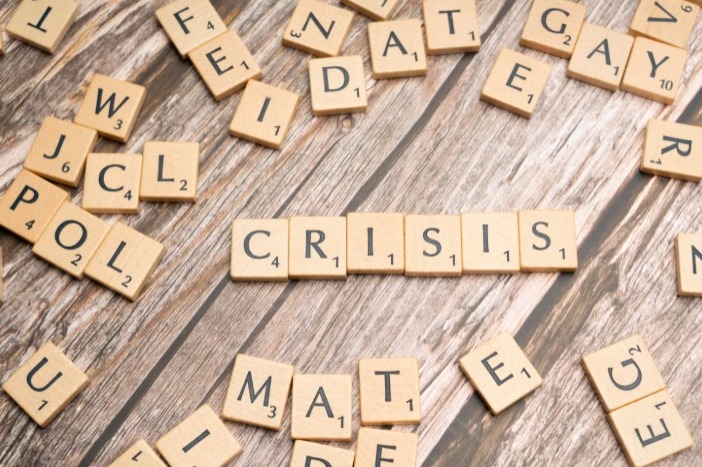Corporate crises don’t discriminate, they hit startups and Fortune 500 giants alike. While businesses can predict some crises, others hit without warning. A data breach, product recall, or supply chain failure can happen to anyone. These events don’t just affect big corporations. They can break a business if handled poorly.
Smart entrepreneurs know this. That’s why they take the time to assess how other companies manage crises. For them, studying how companies overcome these storms isn’t academic; it’s survival insurance. Learning from others’ mistakes and successes is a simple but powerful way to build resilience into your business model.
Crisis Isn’t Rare, It’s Inevitable
A crisis isn’t always about financial issues. It can appear in many forms. Think about a damaged reputation, operational failures, or product recalls. Ethics and legal challenges also count. Non-financial crises, like ethical breaches or product recalls, can still inflict severe financial damage and erode brand trust.
You might be surprised how common these events are. A 2023 PwC global study found that over 95% of organizations experienced major disruptions over the past 24 months. Over three-quarters of organizations commented that their most severe disruption had a moderate to high impact on their performance.
What’s more revealing is just how few businesses are prepared. While nearly two-thirds of organizations agreed to implement integrated resilience strategies, only one in five completed that transition. That means most companies are still operating with gaps in their disruption-handling processes.
Looking ahead, many planned to boost their efforts in areas like cyber resilience, crisis planning, and emergency management. These are the exact areas where small businesses often lag. As an entrepreneur, you may not have a full crisis response team like a large company.
However, you can still prepare. Knowing how others dealt with similar situations helps you act faster and smarter when your time comes.
Learning From Others’ Missteps
Studying past corporate crises provides a massive advantage. It’s like having a guide to avoid common traps. You learn to spot weaknesses and see how bad decisions create a chain reaction. This knowledge empowers you and helps you build strong backup plans. The goal isn’t to alarm you; it’s to equip you.
Consider highly regulated industries, like pharmaceuticals. The stakes are extremely high. Companies face close examination. Any mistake about product safety can harm public health. It can also lead to legal problems and harsh penalties. Developing, testing, and distributing drugs is complex. A small error can evolve into a major crisis.
In this complex world, product liability cases are common. They can shake a company’s very foundation, causing people to lose trust in them. One well-known case demonstrates how even legacy pharmaceutical companies can find themselves exposed when a crisis hits. For example, the Depo-Provera lawsuit involves claims about bone density loss and brain tumors.
Many claimed they were not properly warned. The company faced lawsuits and heavy criticism. TorHoerman Law reveals that in February 2025, the Depo Provera MDL was formally created and allocated in the Northern District of Florida. This case highlights the deep legal and ethical concerns pharmaceutical companies face.
It’s a clear warning for any business dealing with public well-being. Whether you’re selling supplements, beauty products, or health devices, transparency matters. Always disclose potential risks, no matter how small they seem. Lack of communication can quickly turn into a legal battle or damage your brand for years.
Key Takeaways for Entrepreneurs
Practical lessons come from examining past crises. Look at what happens during an IT outage. A 2024 Forbes article highlighted lessons from global IT service disruption. In July 2024, an IT outage caused by a faulty update from CrowdStrike shut down critical systems across industries worldwide.
Airports, hospitals, and banks faced delays, errors, and service losses. The article emphasizes how businesses can respond quickly and transparently during crises. They should be transparent, offering updates across multiple channels, and ensuring top executives are visible and accountable.
It also highlights the need for redundant systems, strong disaster recovery plans, and regular testing of those plans. These aren’t just IT lessons; they’re essential practices for any business wanting to survive and recover from major disruption. But tech failures aren’t the only threat.
Physical systems can be just as fragile and just as disruptive. For instance, supply chains are also very vulnerable today. According to ResiliInc, global supply chain disruptions in 2024 increased by nearly 40% compared to 2023. Factory fires, labor disruptions, mergers & acquisitions, leadership transitions, and factory disruptions were the top five leading disruptors.
While factory fires fell by over 20%, global labor disruptions and protest/riot disruptions increased by 47% and 285% year-over-year, respectively. Additionally, leadership transitions soared by 95%, while mergers and acquisitions declined by 5%.
While these statistics often focus on large enterprises, the lessons apply particularly to small businesses that lack the resources to absorb major shocks. If your startup depends on parts or products from another country, you’re at risk. A delayed shipment can lead to unhappy customers, negative reviews, or lost revenue.
Review your supply chain. Build local partnerships if possible, or at least plan for delays. Not every crisis makes headlines; sometimes, it’s as simple as running out of inventory at the worst possible moment.
What Entrepreneurs Should Learn From Real Crisis Cases
When studying past crises, don’t just focus on the mistakes. Look closely at what companies did right. When reviewing real-life crisis responses, ask yourself questions like these:
- Did leadership respond quickly?
- Was the messaging honest and clear?
- Did the company accept responsibility or shift blame?
- Were customers updated often?
Good crisis management doesn’t mean avoiding all damage. It means limiting the damage and rebuilding trust. Brands that survive crises communicate openly, fix the issue quickly, and prioritize people. These are habits you can adopt even in the early stages of your business.
However, having a crisis plan isn’t enough; you must embed crisis awareness into your business culture. This is particularly crucial for entrepreneurs. Crisis management is more than reacting. It is about actively finding weak spots. It means building a resilient mindset from the start.
This involves ongoing training and constant checks. Your leadership also plays a vital role in fostering this culture. Being prepared brings many benefits. It means faster recovery from problems. It reduces damage to your business, and your reputation can even improve after a crisis.
People Also Ask
Q1. What is the first step in creating a small business crisis management plan?
Identify your most vulnerable areas. Think about what could go wrong specifically for your business, like a power outage or a key supplier issue. Then, identify who would be responsible for different tasks during such an event. This initial assessment helps tailor a relevant and effective plan.
Q2. How can entrepreneurs test their crisis preparedness without a real crisis?
Entrepreneurs can conduct tabletop exercises. This involves walking through a hypothetical crisis scenario with your team and discussing how you’d respond. You can also do “dry runs” for specific parts of your plan, like testing backup systems or communication channels. These simulations reveal weaknesses before they become real problems.
Q3. How can businesses leverage social media for crisis management?
Social media is crucial for quick communication during a crisis. It allows brands to share updates directly with customers and stakeholders. It also helps them monitor public sentiment and address misinformation swiftly. Having a pre-approved communication strategy for social media channels can significantly help manage your brand’s image.
Crises are part of running a business. You can’t avoid them all, but you can control how you respond. The best way to prepare is to learn from others, especially from companies that failed to act swiftly or made poor decisions under pressure. Don’t wait for your first crisis to figure out what to do.
Use case studies and real-world events to build a stronger, more prepared business today. That’s what smart entrepreneurs do.









